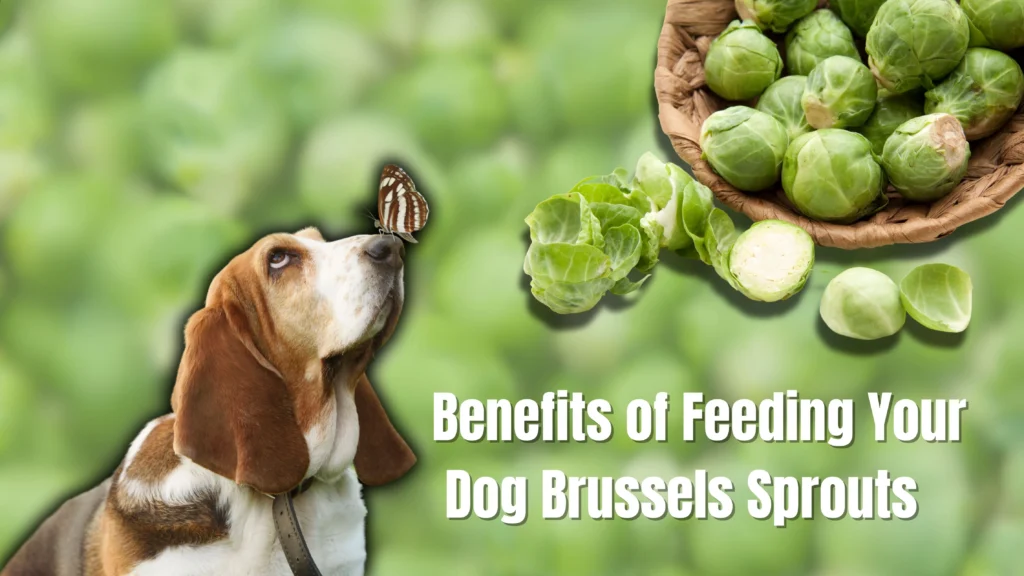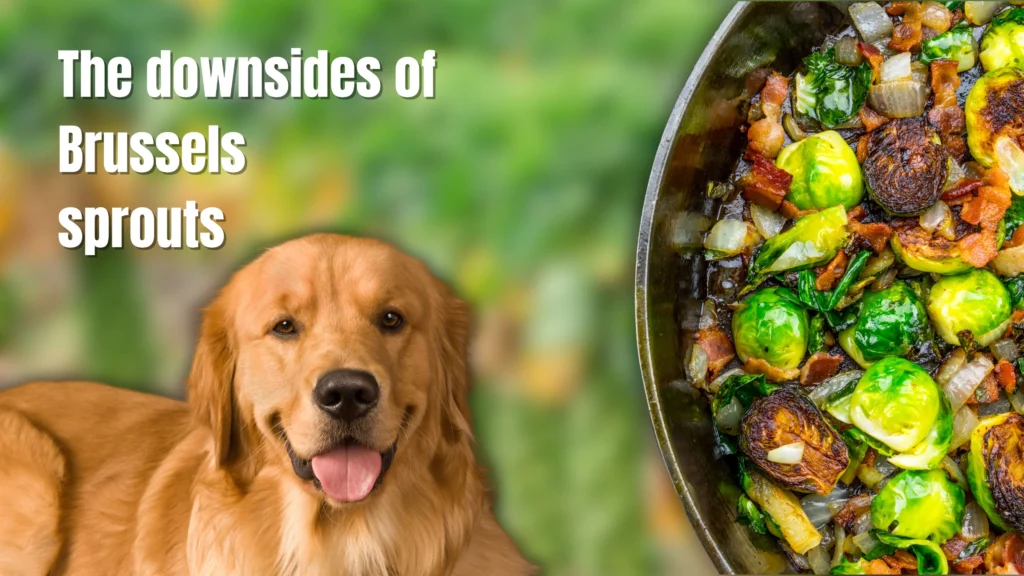Can Dogs Eat Brussels Sprouts?
Brussels sprouts, a nutrient-dense cruciferous vegetable, can be a healthy addition to your dog’s diet when served in moderation. can dogs eat Brussels sprouts? Known for their immune-boosting properties and rich fiber content, Brussels sprouts offer several benefits to dogs, such as improving digestive health and providing essential vitamins and minerals. However, there are some factors to consider before sharing this veggie with your furry friend, including the possibility of increased flatulence, a common side effect for both humans and dogs.
While Brussels sprouts are often associated with holiday dinners and a love-hate relationship among humans, their growing popularity as a health food option is undeniable. For dogs, these mini cabbages can be a tasty and beneficial treat when cooked and served in appropriate portions, taking into account their body size. It’s important to ensure that they are properly prepared to avoid any digestive discomfort. With proper serving sizes, dogs can enjoy the same nutritional benefits from Brussels sprouts as their human companions.
If you’re considering adding Brussels sprouts to your dog’s diet, it’s crucial to understand the precautions. While they are safe for dogs, the serving size should be small to prevent gastrointestinal issues. So, if your dog is giving you those pleading eyes during your holiday meal, feel confident that they can enjoy a bite of Brussels sprouts with you—just remember moderation is key!

Are Brussels Sprouts Good for Dogs? 3 Benefits of Feeding Your Dog Brussels Sprouts
Brussels sprouts offer numerous health benefits for dogs, providing essential vitamins like A, C, K, and B-complex, which support immune function, metabolism, and bone health. They are low in fat, carbohydrates, and calories, making them a healthy treat for dogs, including those with diabetes. The high fiber content aids in digestion, helping regulate bowel movements, but should be given in moderation to avoid gastrointestinal issues like diarrhea.
In addition to vitamins, Brussels sprouts are rich in antioxidants like kaempferol and isothiocyanates, which protect against free radicals and reduce the risk of chronic diseases such as cancer and heart disease. The fiber also promotes weight management by increasing satiety, making Brussels sprouts a good option for overweight dogs. Essential minerals like potassium, calcium, and manganese further support bone and muscle health.
While these vegetables are packed with health benefits, it’s important to be aware of potential side effects. Excessive consumption can lead to digestive discomfort, so it’s crucial to offer Brussels sprouts in controlled portions to keep your dog healthy without upsetting their stomach.
How to Safely Prepare Brussels Sprouts for Dogs
When introducing Brussels sprouts to your dog’s diet, start with small portions and watch for any signs of digestive upset. It’s important to choose plain, fresh, or frozen sprouts without added seasonings or preservatives. Cooking Brussels sprouts by boiling, steaming, or microwaving makes them safer and easier to digest while avoiding raw or heavily seasoned options that could harm your dog.
Before serving, allow the cooked Brussels sprouts to cool and cut them into smaller, bite-sized pieces to prevent choking. Serve in moderation, as too many sprouts can cause bloating or stomach issues. Treats like Brussels sprouts should make up no more than 10% of your dog’s daily caloric intake, with portions adjusted based on your dog’s size.
If your dog enjoys Brussels sprouts, you can mix them into their food or serve them as a standalone treat. Always consult your vet before adding new foods to your dog’s diet, especially if they have dietary restrictions or allergies. By preparing Brussels sprouts properly, you can share this healthy snack with your pet safely.

The downsides of Brussels sprouts
Brussels sprouts are healthy for dogs, but they can cause gas due to isothiocyanates, which help intestinal muscles push food through the digestive tract. While moderate amounts can improve digestion, too many sprouts may lead to excessive gas, stomach upset, and diarrhea. The gas, though unpleasant, isn’t harmful, but consult a vet if symptoms persist.
Raw Brussels sprouts and their fibrous stalks can be difficult for dogs to digest, potentially causing gastrointestinal issues or blockages. Cooking the sprouts and peeling the stalks make them safer. Always serve Brussels sprouts in moderation to avoid digestive discomfort for your dog.
Are Brussels sprouts bad for dogs?
Brussels sprouts can benefit dogs but should be served in moderation to avoid digestive issues. The vegetable contains raffinose, a carbohydrate that can cause gas and bloating in both dogs and humans. While flatulence is not harmful, it can be uncomfortable and bothersome for both you and your dog as their digestive system processes the sprouts.
Cooking Brussels sprouts and cutting them into small pieces can help prevent choking or intestinal blockage. The high fiber content promotes bowel movements, but too many sprouts can lead to diarrhea and stomach upset. Always serve them plain and cooked to deactivate enzymes that may interfere with thyroid function, and avoid adding seasonings like butter or bacon.







